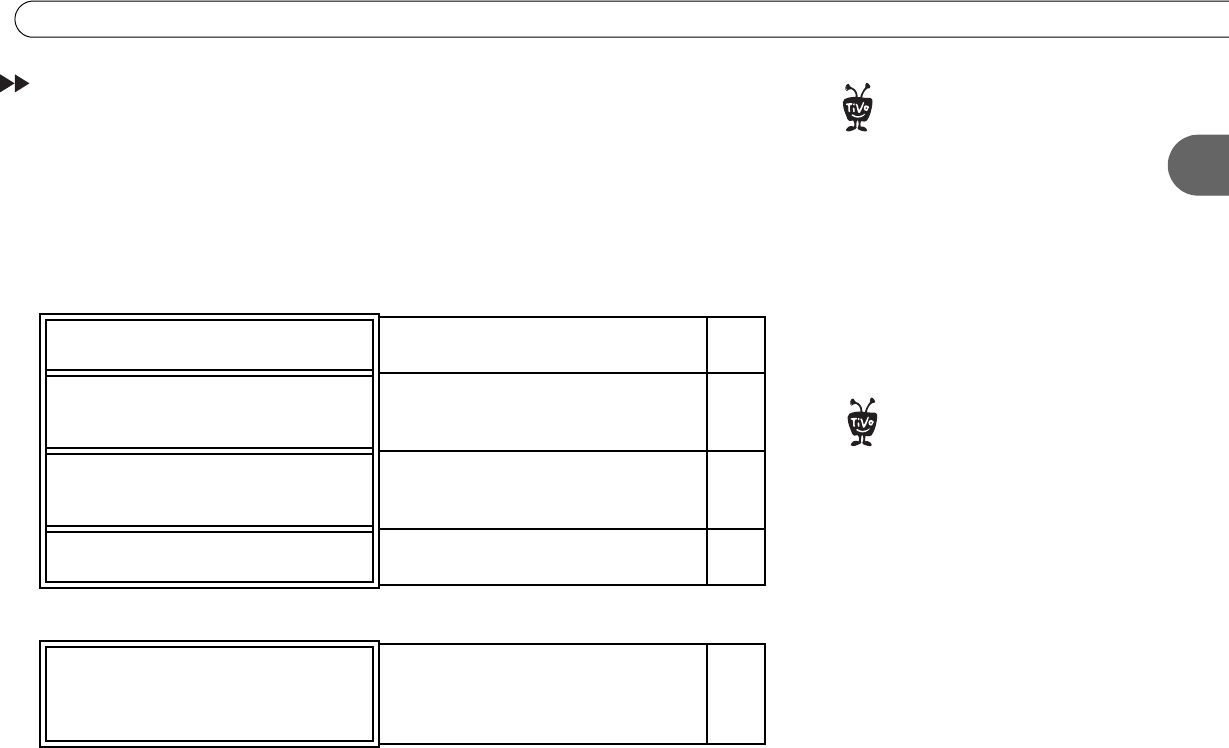
9
Choosing a Setup Example
1
Choosing a Setup Example
The rest of this chapter provides examples for connecting your Recorder to your program
source (antenna, cable, or satellite), your TV, and other optional A/V equipment. From the
list below, choose a basic setup based on your program source.
After you get your basic system working, connect other equipment (such as a VCR, DVD
player, or game console) to additional inputs on your TV or A/V receiver.
Basic Setups: Connect your Recorder to your Program Source and your TV
Setup Variations: These are variations on the Basic Setups
Your program source is antenna or
cable with no cable box.
Setup 1: Antenna or Cable (No Cable Box)
p. 10
Your program source is either a cable
or satellite box. (If you have both, see
Setup 4, below.)
Setup 2: Cable or Satellite Box
p. 12
You have two program sources: a
satellite box and an antenna; or a
satellite box and cable (no cable box).
Setup 3: Satellite Box & RF Program
Source
p. 14
You have two program sources: a
satellite box and a cable box.
Setup 4: Cable Box and Satellite Box
p. 16
Your program source is antenna or
cable (with or without a cable box) and
you want to watch one channel while
recording another.
Watching One Channel & Recording
Another (Antenna or Cable)
p. 18
Th
e
R
ecor
d
er
i
s not
d
es
i
gne
d
to
support a heavy load, such as a TV.
Your Recorder is only capable of
supporting the weight of one or two
common A/V components such as VCRs,
DVD players, or A/V receivers (provided
they have four good, broad, padded feet
that distribute of the weight near the
corners of the Recorder).
Also, avoid stacking your Recorder on top
of other electronic components such as
VCRs, A/V receivers, or your TV’s vents.
®
Before you begin:
Make sure all your equipment is turned off
and the Recorder is unplugged.
®


















